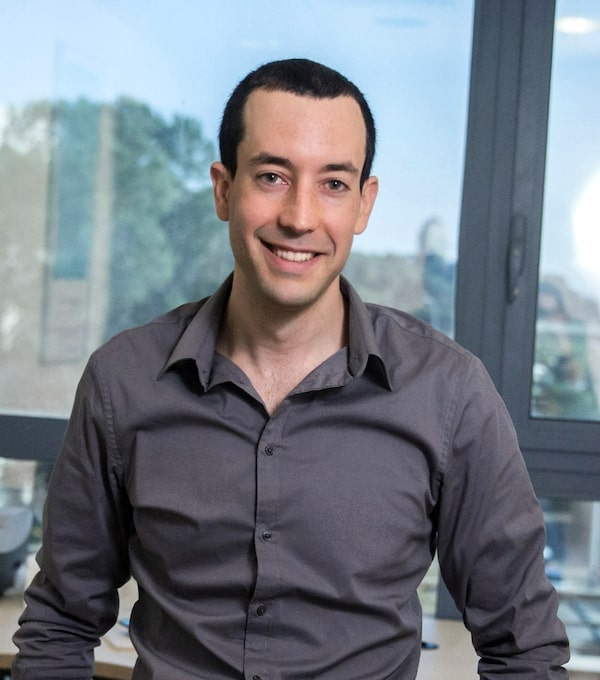
Author Bella DePaulo: “More and more single people are enlightened about Valentine’s Day and happy with their single lives; nothing about the holiday makes them feel bad and they don’t need any advice.”Timonko_Galina_0950305242/istock
As the population of single people grows yearly, with many living happy, fulfilled lives, there is a gradual shift in the notion that Valentine’s Day is torture for the uncoupled.
But Feb. 14 remains a platitude minefield for many. As an expert on singles and living an uncoupled life, social psychologist Bella DePaulo watches her inbox fill up at this time every year with the usual clichés and stereotypes on how to cope with Valentine’s Day as an individual without a significant other.
The author of Singled Out: How Singles Are Stereotyped, Stigmatized and Ignored, and Still Live Happily Ever After, and a project scientist at the University of California, Santa Barbara, Dr. DePaulo takes offence at the idea of Feb. 14 being a “day of torture” for those without a romantic partner.
“More and more single people are enlightened about Valentine’s Day and happy with their single lives; nothing about the holiday makes them feel bad and they don’t need any advice.”

Social psychologist Bella DePaulo, author of Singled Out: How Singles Are Stereotyped, Stigmatized and Ignored, and Still Live Happily Ever After, and a project scientist at the University of California, Santa Barbara.Bella DePaulo
However, she is pleased to see a gradual shift in that attitude, with more and more individuals feeling comfortable with their single lives and the opportunities that come with it.
But their growing numbers and importance remain unacknowledged, Dr. DePaulo says. The 2016 Canadian census revealed that for the first time, one-person households were the dominant household type in this country, with 28.2 per cent of Canadians living as such. In addition, 9 per cent of Canadian households consist of a lone-parent family.
“They need to be taken seriously,” Dr. DePaulo said in an e-mail interview, referring both to policy and cultural assumptions. “That means the stereotyping and stigmatizing and discrimination (that I call singlism) needs to stop. Single people need to be respected.”
People who are married benefit from discrimination against single people that ranges from financial benefits, such as tax breaks, to social benefits, such as travel deals, she says.
Part of the problem has been the long-held mythology that surrounds marriage and the pursuit of living happily ever after.
Clare Payne, author of One: Valuing the Single Life, says that while there continues to be a demographic shift toward single people and people living alone, the cultural narrative still seems to be built around the traditional adult milestones of moving out of the childhood home, getting married and having children.

Clare Payne, author of One: Valuing the Single Life.Clare Payne
However, when it comes to making a contribution to society, the opposite may, in fact, be true. While married people in families tend to focus inward on their own household, single people are more likely to make contributions to the societies they live in, she says. In the United States, for example, single people volunteer more than coupled people, she adds.
“They are actually great contributors, which is one of the myths about their lives,” Ms. Payne says. “People think that [being single] is a selfish life, where actually they are really the backbone of a lot of families, organizing family get-togethers, looking after their parents, etc.”
The tired cliché about single people being irresponsible, risky and socially awkward also applies to the idea of leadership.
“In the corporate world, over 90 per cent of chief executive officers are married,” she says. “Same with our world leaders. Very few are unmarried and very few don’t have children and there’s a real sort of bias around what a leader looks like and it’s someone who’s married with kids.”
In Australia, where Ms. Payne is based, she says that the premier of New South Wales, Gladys Berejiklian, is a single woman without children and has never been married. When she took office two years ago, one of the first questions she was asked by the media was around how could she possibly understand families.
“I think, well, how come they didn’t say to any other politician, ‘How can you understand a quarter of your adult electorate who are single … how will you understand them because you are married,' ” Ms. Payne says. “You don’t get it in reverse.”
Society may be starting to adapt to the predominance of single adults, though. For instance, when it comes to factors such as accommodation, the recent foray of work space provider WeWork into apartments has resulted in WeLive, a community of micro apartments in New York and Washington.
Elyakim Kislev, author of Happy Singlehood: The Rising Acceptance and Celebration of Solo Living, interviewed 142 people around the world for his book. Dr. Kislev, an assistant professor at The Hebrew University of Jerusalem, says that if we are looking to build a more connected society, we should be paying attention to the single population, not the married population.

Elyakim Kislev, author of Happy Singlehood: The Rising Acceptance and Celebration of Solo Living.Elyakim Kislev
“We have one study that tracked people from the eighties to the 2000s and this research showed that married people became more isolated over this 20-year period and single people became more adept in building social networks.”
He says that companies such as WeLive are championing the kind of ideas and communities that will continue to grow, especially in urban areas.
“People want to be single in this world and they’re growing and doing so all over the world,” he says.
In fact, he, as well as Dr. DePaulo, suggest we start preparing children that they may lead a single life as a valid choice.
One reason more people are choosing singlehood may be because the traditional benefits of marriage may be eroding, suggests Simon Sherry, a professor and registered psychologist at Dalhousie University in Halifax.

Simon Sherry, a professor and registered psychologist at Dalhousie University in Halifax.Geoffrey Creighton/Dalhousie University
“In the past it was thought that marriage has strong protective effects on health, that being married meant greater well-being, greater satisfaction, greater mental and physical health. But it seems perhaps the quality of marriage is declining,” due to factors such as work-family conflict.
A 2015 study lead by Jutta Mata from the University of Basel in Switzerland found that married people weigh, on average, about five pounds more than single people, and they have higher body mass indexes, too. Dr. Sherry says it appears one of the factors is that married people seem to have greater difficulty exercising compared with single people. “It seems, in 2019 at least, a legitimate healthy choice to remain uncoupled.”
 Paul Attfield
Paul Attfield